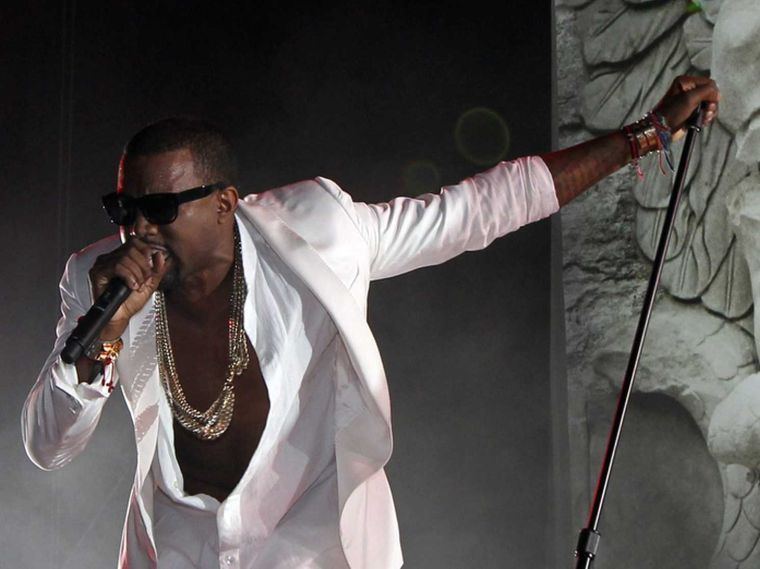
The agony and ecstasy of Yeezus maintains West’s winning streak
When Kanye West made the dramatic leap from laid-back Chicago rap to chilly auto-tuned crooning on 2008’s 808s & Heartbreak, the public was shocked. In 2013, however, Kanye could throw out an album of accordion music produced by Elton John, and critics wouldn’t bat an eye.
That is to say, after six well-received studio albums and what seems like a lifetime in the public eye, can Kanye West — pop provocateur, Twitter eccentric, visionary artist, alleged Illuminati leader, honorary Kardashian, new father — still reinvent himself? Can he surprise us anymore? Intentionally or not, that question seems to be at the core of Yeezus, West’s excellent, self-aware latest album.
Stripping back the glossy, symphonic production of My Beautiful Dark Twisted Fantasy and largely eschewing conventional record label promotion, Yeezus feels like West’s attempt to transform his game, to change the conversation that has come to define his artistic output and his up-and-down, reality-TV-ready personal life.
But though the bombastic, under-produced Yeezus is slightly jarring on first listen, the differences between it and West’s other works are skin-deep at best. While Yeezus takes the occasional shot at social issues and dabbles in militant iconography, West’s latest finds the infamous emcee still hung up on his favorite subject: Kanye West.
Indeed, Yeezus finds West amping up his narcissism to an extreme degree. Tracks such as “I Am a God” even start to border on knowing self-parody: “I am a God/ So hurry up with my damn massage,” West raps. “In a French-ass restaurant/ Hurry up with my damn croissants.”
And even when he gets political, West always finds a way to return to his pet themes — ego and the perils of celebrity. “New Slaves,” for instance, finds West on a tour through the civil rights movement (“My mama was raised in an era when/ Clean water was only served to the fairer skin”) and breathlessly railing against commercial exploitation of black artists (“Y’all throwing contracts at me/ You know that n—– can’t read”) before inevitably turning back to his own critics and fear of public scrutiny (“So go and grab the reporters/ So I can smash their recorders”).
Or take album centerpiece “Blood on the Leaves”: Though it samples Nina Simone’s recording of the anti-lynching anthem “Strange Fruit,” West takes the loaded imagery and personalizes it, using the noose as a symbol not just of racial oppression, but of his own fears about relationships, marriage and monogamy.
“Now you sittin’ courtside, wifey on the other side/ Gotta keep ’em separated, I call that apartheid,” West raps over a pulsing staccato blast. “On and on that alimony, she got you homie/ ’Til death do you part, unholy matrimony.”
Elsewhere, West revisits and plumbs his own musical past for inspiration. References abound to past hits (he name-drops “Monster” and “Jesus Walks”), while the Daft Punk-produced, electronica-laced “On Sight” finds West pulling lyrics straight from his last Daft Punk collaboration, 2007’s “Stronger.” But where his cries of “I need you right now” rang like a rallying call on Graduation, the skipping, distorted sample sounds hollow on Yeezus — producing a call not of triumph, but of loneliness and desperation.
It seems odd to call Yeezus a personal record, as every West album is more personal — and more deeply Ye-centric — than the last. Still, the mixtape rawness and lurching brutality of the production, combined with the deep-seated cleverness of West’s lyrics, make Yeezus seem vital. Even though Kanye has become ubiquitous as a paparazzi figure, he thankfully still has a lot to say as an artist (even if it’s just about Ye).
diversionsdbk@gmail.com



